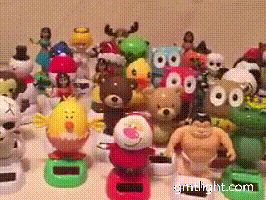Tao Te Ching, Chinese “Bible”,the oldest Bible in China
Lao Zi ,philosopher in the Spring and Autumn Period, founder of Taoism.
Laozi's achievements are mainly reflected in Book of Laozi. Laozi, also known as the Tao Te Ching, and the book of changes and the Analects of Confucius are considered to be the three most profound ideological Masterpieces for Chinese people. However, according to the date of Laozi unearthed from Guodian bamboo slips in 1993, the date of its completion is at least in the middle and early Warring States period. This book is about 5000 words in total. It was originally called Laozi but not Daodejing. Later, it was called "Tao Te Ching" and divided into 81 chapters, which were divided into two parts: the first chapter was 37 chapters of Dao Jing, and the second chapter was 44 chapters of De Jing. The ideological structure of the book is: Tao is the "body" of virtue, and virtue is the "use" of Tao.
Laozi's Tao Te Ching is for the emperor to listen to, is the basis of management.
The theory of heaven,Tao Te Ching, the oldest “Bible” in China
The main category of Lao Tzu's thought is "Tao". The word "Tao" appears 73 times in Lao Tzu, and the natural inaction of heaven is the main theme of Lao Tzu. Tao is a kind of chaotic initial state. It is the beginning of heaven and earth, the mother of all things, and the root of all things. Tao is often nameless and does nothing but do everything. Like water, it benefits all things but does not compete with all things, and is the highest good. Tao is unspeakable, and human senses can not directly perceive it, see it, hear it, and hold it It's impossible. Tao is not only the noumenon of the universe, but also the rule of all things and the criterion of life. Confucianism regards heaven, earth and man as the "three Cardinals", while Laozi takes Tao, Tian, Di and man as the "four great". The "four visions" will open up the "three visions" of Chinese culture. Tao comes from the metaphysics, but runs through the form; and in the process of penetration, it does not leave any room for the will and purpose of the creator such as heaven and Emperor. Two thousand and five hundred years ago, Lao Tzu's Tao was a great invention based on the fundamental transformation of the original Tao theory.
As the origin and noumenon of the existence of all things in heaven and earth, Tao creates and achieves all things in the world. However, Tao's achievement of all things in heaven and earth is not intentional, but entirely out of unintentional action, which is entirely natural. Laozi said: "man follows the earth, the earth follows the heaven, the heaven follows the Tao, and the Tao follows the nature." "Tao follows nature", and natural people are naturally satisfied. Nature is the description of the state and action of Tao, not the nature with a substance beyond Tao. It is the nature of Tao to be born without being, to do without relying on nature. The nature of Tao is natural inaction, but it is this inaction that makes it possible; it is inaction that makes everything possible. This phenomenon, which is highly summarized by Laozi in philosophy, is "doing nothing but doing nothing".
"Doing nothing but doing everything" is not only the great virtue and utility of Tao, but also the most fundamental law governing all things in heaven and earth. It is the fundamental law for individuals to settle down and live, and it is the so-called "truth". "If you don't live by yourself, you can live forever" and "if you don't grow by yourself, you can grow by yourself". This is the basic principle of "to fight for one's life before one's death". "Inaction" is not only the use of Tao and the principle of Tao, but also "daoshu". It is the basic means and method for the prince to govern the country. The "King" and the rule of the world should also take the Tao as the law. "Nothing, or something, is not enough to win the world.". Therefore, "I have nothing to do and the people become self-made; I am quiet and the people are right; I have nothing to do but the people are rich; I have no desire and the people are simple.".
Dialectical Thought,Tao Te Ching, the oldest “Bible” in China
Laozi thinks that everything in the world exists by comparison. Beauty and ugliness, good and evil, existence or absence, difficulty, length and length are all interdependent. only when there is this, can there be that; when there is right, there will be wrong; if there is good, there will be evil. On the surface, the two opposing aspects are opposite to each other, but in fact they are mutually inclusive and penetrating. "Misfortune is where happiness lies; happiness is where misfortune lies." Everything is you in me, I have you, everything is not immutable. In Chapter 40 of Tao Te Ching, Lao Tzu put forward that "the opposite is the action of Tao". That is to say, when things are developed to a certain extent, they will inevitably turn to the opposite. The so-called "if things are strong, they will grow old," and if they are strong, they will perish. At the same time, the development of things and the transformation of things to the opposite side are not realized at once, but need to go through a process of continuous accumulation in quantity. "A tree embracing one's arms is born at the end of a grain; a platform of nine storeys begins with the accumulation of soil; a journey of a thousand miles begins with a single step."
Social theory,Tao Te Ching, the oldest “Bible” in China
Lao Tzu believes that the nature of Tao is natural inaction, which is the fundamental law governing all things in the universe and the basic code of conduct that human beings should abide by. Starting from the principle of inaction, Lao Tzu opposed man's action, because action destroyed man's original natural simplicity, caused the split of personality, and brought all kinds of social ugly phenomena, such as hypocrisy, cunning, greed, evil and so on. "There is benevolence and righteousness when the great way is abandoned; there is great hypocrisy when wisdom comes out; when the six relatives are not in harmony, there is filial piety; when the country is in chaos, there are loyal officials." There is a way in the world, everything comes naturally. Instead of flaunting benevolence and righteousness, it has its own benevolence and righteousness. It means that benevolence and righteousness no longer exist. Therefore, Lao Tzu put forward the idea of "abandoning deceit by wisdom" and "abandoning cleverness and profit", and advocated that "a small country with few people, so that the people have Shi Bo's tools instead of using them", "although there are boats, there is no place to ride them; although there are armour soldiers, there is nothing to show; so that people can use them by tying ropes again".




